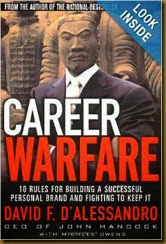Let me tell you a story.
Years ago a friend was working in technology. This person had a great job, made lots of money, and was a success. They received unsolicited job offers, changed jobs a few times, and generally enjoyed their job.
However they weren't completely happy. Work was stressful, and more importantly, it wasn't fulfilling. What this person really wanted to do was work in another field entirely, one that required a substantial pay cut and self-employment.
With this person's family, they made a plan. It was a plan that crossed years, with quite a few changes. My friend paid for training. This person practiced skills for the new industry in their spare time. My friend worked part time in this new field, at night and on weekends, slowly trying to build a base.
More importantly, the family bought in and they slowly made financial changes, reducing debt and changing lifestyles to get prepared. The plan changed and altered over time as life often does.
This went on for years, over 5 of them.
Five years.
Eventually my friend reached a point where they made a change. This wasn't according to plan, in fact, the more formal version of the plan called for another couple years of work. However my friend decided it was time for a change.
After resigning, my friend started a new career and it's worked out well. I know, because this friend is my best friend, my wife.
We spent years planning for her to leave technology, and it was hard, it took focus and perseverance, and lots of patience. I would never have guessed this is how life would go, but it did. We initially planned for a year of her new career and then to evaluate it's feasibility. It's worked out well, and almost three years later, she's still enjoying her new career.
You can do the same thing. You don't have to leave technology if you don't want to, but I'd encourage you to pick the career you want. Maybe you'd rather be a DBA than a developer, or vice versa. Maybe you'd rather be a manager.
You worry about pay changes, or problems with your skills. Those are valid concerns, but not reasons to avoid making a change.
Life is short. Live the one you want.

